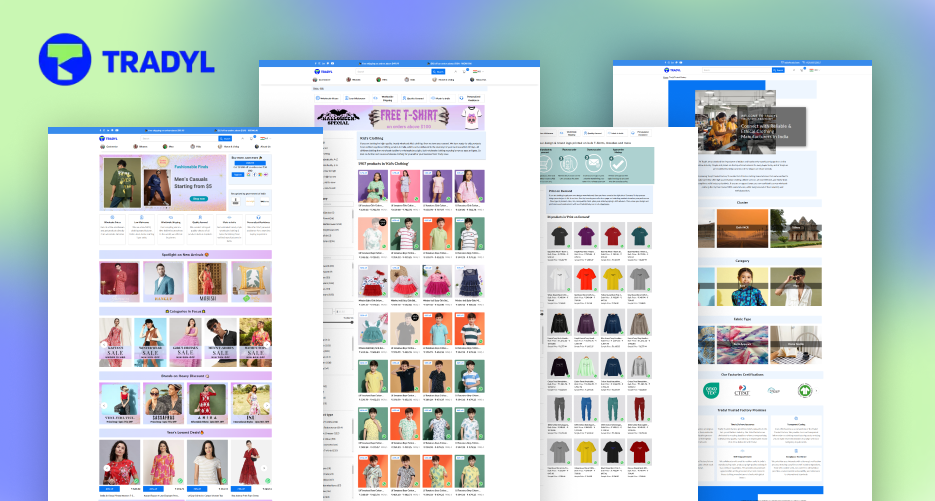An e-commerce website is a digital platform designed for businesses to showcase, market, and sell their products or services online. It serves as a virtual storefront, allowing customers to browse, select, and purchase items from the comfort of their own homes or wherever they have internet access. E-commerce websites have revolutionized the way businesses operate and how consumers shop, offering numerous advantages for both buyers and sellers.
Category: Web Development
Date: 25 august , 2022
Client: tradyl
Web: tradyl.com
Tech Stack:

E-commerce businesses leverage data analytics to gain insights into customer behavior, optimize the shopping experience, and make informed business decisions.
E-commerce platforms often offer promotions, discounts, and sales events to attract and retain customers. These can include coupon codes, limited-time offers, and loyalty programs.
Many e-commerce sites provide customer support options such as live chat, email support, phone support, or a comprehensive help center with frequently asked questions (FAQs).
E-commerce websites frequently feature user-generated product reviews and ratings. These reviews offer valuable insights to potential buyers and contribute to building trust in the brand.
E-commerce sites offer a variety of payment methods to accommodate customer preferences. Common options include credit/debit card payments, digital wallets (e.g., PayPal), bank transfers, and cash on delivery.
A virtual shopping cart allows customers to add products to their online basket as they shop. It keeps a running tally of the selected items and their total cost.
E-commerce websites feature a comprehensive product catalog that displays the range of items available for purchase. Each product listing typically includes high-quality images, detailed descriptions, pricing information, and product specifications.
E-commerce websites prioritize the security of online transactions. They employ encryption technologies and secure payment gateways to protect sensitive customer data during the checkout process.
An intuitive content management system (CMS) allows businesses to easily update product listings, descriptions, images, and other website content.